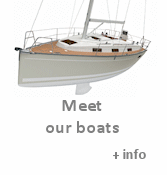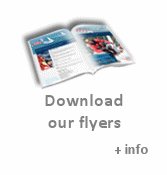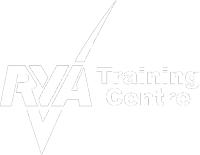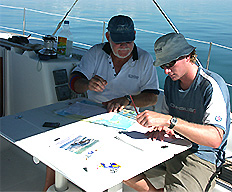 This is a shorebased course, important for anyone who plans to take the RYA Coastal Skipper or is planning to do one of the Yachtmaster exams (Coastal or Offshore).
This is a shorebased course, important for anyone who plans to take the RYA Coastal Skipper or is planning to do one of the Yachtmaster exams (Coastal or Offshore).It includes advanced navigation knowledge, coastal and offshore passage planning. It covers in detail tides, the use of the Almanac and Tidal Atlas, main and secondary ports. Also includes advanced meteorology, safety and IRPCS knowledge and the use of electronics for navigation.
It’s available in a class based format (40 hours in a classroom, followed by an exam) or by distance learning (Online, provided by "Skippers Online", a RYA recognized Training Centre, specializing in online distance learning).
It’s available in a class based format (40 hours in a classroom, followed by an exam) or by distance learning (Online, provided by "Skippers Online", a RYA recognized Training Centre, specializing in online distance learning).
Programe
Before you start your course you’ll get a diagnosis test and some revision recommendations about IRPCS, fundamental knowledge that is necessary to recall so you can keep up with the course.
On your first day you’ll get the learning package that includes the Yachtmaster Handbook and the “GPS Chartplotter" simulator, that will be used during the course.
The final exam of 5 hours is divided in 3 parts: IRPCS, Chart Work and Meteorology. Additionally, the course covers yet safety equipment, stability, skippers responsibilities, electronics and navigation.
The program consists, among others, on the following topics:
 Position fixing;
Position fixing;
 Heading, course over ground and course to steer;
Heading, course over ground and course to steer;
 Advanced tidal knowledge;
Advanced tidal knowledge;
 The use of the Almanac and Admiralty publications;
The use of the Almanac and Admiralty publications;
 Electronics and navigation;
Electronics and navigation;
 Taking and interpreting weather forecasts;
Taking and interpreting weather forecasts;
 Atmospheric systems;
Atmospheric systems;
 Weather predictions using a barometer and by observation;
Weather predictions using a barometer and by observation;
 IRPCS
IRPCS
 Foreign navigation - Customs and regulations
Foreign navigation - Customs and regulations
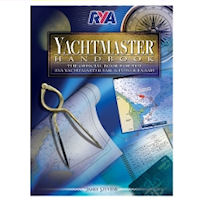
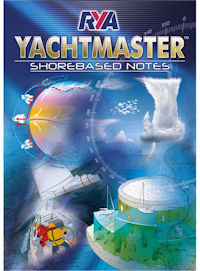
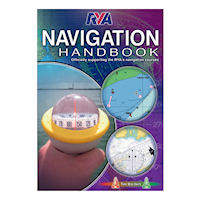
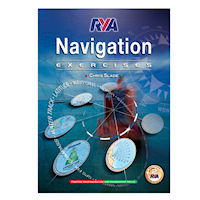
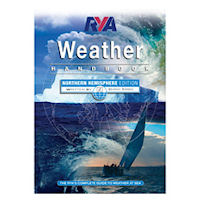
On your first day you’ll get the learning package that includes the Yachtmaster Handbook and the “GPS Chartplotter" simulator, that will be used during the course.
The final exam of 5 hours is divided in 3 parts: IRPCS, Chart Work and Meteorology. Additionally, the course covers yet safety equipment, stability, skippers responsibilities, electronics and navigation.
The program consists, among others, on the following topics:





Pre Requisites
This is an advanced navigation course. Participants usually have attended previously the RYA Day Skipper Shorebased (or have equivalent knowledge).
The instructor assumes that you have already some navigation knowledge and some experience to put in practice. It’s also recommendable that you have some knowledge operating the VHF or have completes the RYA VHF-SRC course
The instructor assumes that you have already some navigation knowledge and some experience to put in practice. It’s also recommendable that you have some knowledge operating the VHF or have completes the RYA VHF-SRC course
Duration
40 hours shorebased (class based) followed by final exam ( 8 hours, 3 papers).
There are, however, many options to attend:
It is also possible to take this course with private tuition, through individual lessons.
Prices
Your training package includes:
* If you’re attending your course in distance learning format you’ll have to purchase your own compass and navigation plotter so you can practice at home. If you’re attending a 5 day class course, you can use the ones we have at your disposal).
Buy Online
To see a Demo of the online course please click here.
To buy your online course you may use the form below or you may contact us for more information.
Warranty
We’ve always thought that “Satisfaction Guaranteed” it’s not a very inspiring sentence. We want you to be satisfied of course, but we would prefer you were absolutely delighted with your experience or training.
We are proud on our work so we’re not satisfied unless you are satisfied. If, for some reason, you are unhappy with the activity or experience that you chose you can repeat it without any additional costs.
We can’t guarantee in advance that you’ll pass and get your certificate. However we can assure you that we’ll do everything we can to help you achieving your goals.
That’s why we’re the only company offering you a “Learning Agreement and Second Chance Warranty”, offering the possibility of repeating the course (or part of it) without any additional costs.
Our main goal is to improve your abilities and assure a remarkable experience, thus we are fully committed with your results.
We’re confident that West Coast will be up to your expectations!
Ask a Question about this Course


